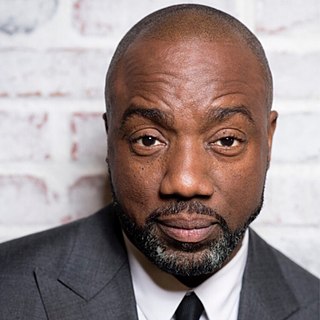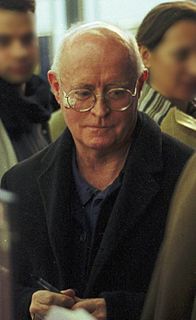A Quote by Mark Billingham
I think women tend to write about how violence feels, whereas men tend to write about what violence looks like.
Related Quotes
My approach to violence is that if it's pertinent, if that's the kind of movie you're making, then it has a purposeI think there's a natural system in your own head about how much violence the scene warrants. It's not an intellectual process, it's an instinctive process. I like to think it's not violence for the sake of violence and in this particular film, it's actually violence for the annihilation of violence.
I think any time you have any kind of social ill, not just domestic violence...as much as it's about the act, the obvious theme of domestic violence, Domestic Violence Awareness Month is also about how men deal with their emotions. It's not just like who gets brutalized; sometimes it's women that are abusing men, too. I think it's just an opportunity for us to look at ourselves. How do we treat each other? Why do we treat each other that way?
Non-violence is a very powerful weapon. Most people don't understand the power of non-violence and tend to be amazed by the whole idea. Those who have been involved in bringing about change and see the difference between violence and non-violence are firmly committed to a lifetime of non-violence, not because it is easy or because it is cowardly, but because it is an effective and very powerful way.
When someone like Kurt Cobain or Jack White comes out, they didn't go, "He sounds just like Muddy Waters," did they? They just said, "He's great, he sounds like him." When women come out and men write about them, they tend to write about them in a way that other men can understand, which sometimes can seem a bit patronizing.
I'm really interested in violence. And I think there's an inevitably cinematic property that violence brings to the moviegoing experience. But one still has to be thoughtful and mature about how you depict it and how you think it through. You have to think about the effects that violence has on audiences, and it's deployed so casually that I think it's losing its meaning. And when things like violence and murder and the dehumanization of other people lose their meaning, then we're really kind of in a place where we have to reexamine and take a hard look at ourselves.
I think women assess time passage much better than men - because of their biological clocks - and they are much more realistic about measuring out time, whereas men tend to hang onto things. Women acknowledge the biology of their time, and dance through the beat of that drum...whereas men just drum.
I think that as a writer your responsibility is to search for and stir up the things that are in this world. There is violence in all of us, and beauty, and strength, and weakness. What's my job? To only write about the good and the beauty, or is it to write about all of it? That's my greater responsibility, to write about them as I see them and as they are.






































